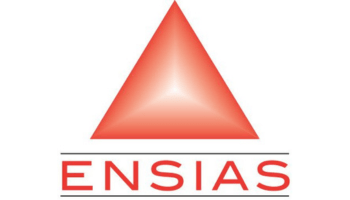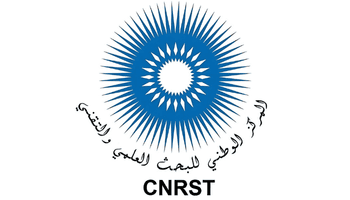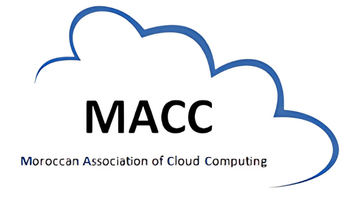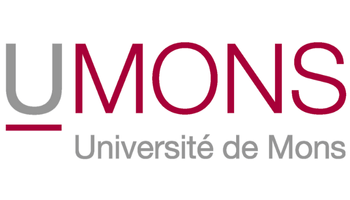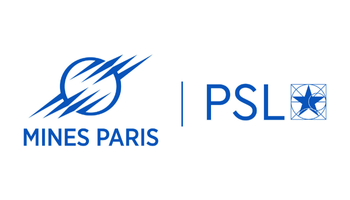Speakers - CloudTech'25
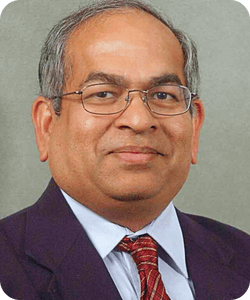
Prof. Dhabaleswar K. (DK) Panda
The Ohio State University, USA
Title :
- Designing High-Performance and Scalable Middleware for the Modern HPC and AI Era
Abstract :
This talk focuses on challenges and opportunities in designing middleware for HPC and AI (Deep/Machine Learning) workloads on modern high-end computing systems, both on-premises and cloud. The talk initially presents the challenges in designing HPC middleware by considering support for dense multi-core CPUs, high-performance interconnects, GPUs, and emerging DPUs. Advanced designs and solutions (such as RDMA, in-network computing, GPUDirect RDMA, on-the-fly compression) to exploit novel features of these emerging technologies and their benefits in the context of MVAPICH libraries (http://mvapich.cse.ohio-state.edu) are presented. Next, the talk focuses on MPI-driven solutions for the AI (Deep/Machine Learning) domains to extract performance and scalability for popular Deep Learning frameworks, large out-of-core models, GPUs, and DPUs. MPI-driven solutions to accelerate data science applications like Dask are also highlighted. The talk concludes with an overview of the activities in the NSF-AI Institute ICICLE (https://icicle.osu.edu/) to address challenges in designing future high-performance edge-to-HPC/cloud middleware for AI-driven data-intensive applications over the computing continuum.
Short Bio :
DK Panda is a Professor and University Distinguished Scholar of Computer Science and Engineering at the Ohio State University. He is serving as the Director of the ICICLE NSF-AI Institute (https://icicle.ai). He has published over five hundred papers. The MVAPICH MPI libraries, designed and developed by his research group (http://mvapich.cse.ohio-state.edu), are currently being used by more than 3,400 organizations worldwide (in 92 countries). More than 1.8 million downloads of this software have taken place from the project’s site. This software is empowering many clusters in the TOP500 list. High-performance and scalable solutions for Deep Learning frameworks and Machine Learning applications from his group are available from https://hidl.cse.ohio-state.edu. Similarly, scalable, and high-performance solutions for Big Data and Data science frameworks are available from https://hibd.cse.ohio-state.edu. Prof. Panda is a Fellow of ACM and IEEE. He is a recipient of the 2022 IEEE Charles Babbage Award and the 2024 IEEE TCPP Outstanding Service and Contributions Award. More details about Prof. Panda are available at http://www.cse.ohio-state.edu/~panda.
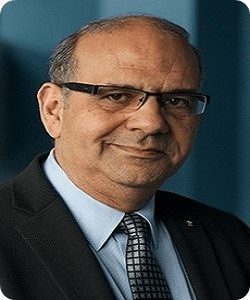
Prof. Tarek El Ghazawi
The George Washington University, USA
Title :
- TBA
Abstract :
To be announced ...
Short Bio :
Tarek El Ghazawi is a Professor in the Department of Electrical and Computer Engineering at The George Washington University, where he leads the university-wide Strategic Academic Program in High- Performance Computing. He is the founding director of The GW Institute for Massively Parallel Applications and Computing Technologies (IMPACT) and was a founding Co-Director of the NSF Industry/University Center for High-Performance Reconfigurable Computing (CHREC). El-Ghazawi’s interests include high-performance computing, computer architectures, reconfigurable and embedded computing, nanophontonic based computing. He is one of the principal co-authors of the UPC parallel programming language. At present he is leading and co-leading efforts for Post-Moore’s Law processors including analog, nanophotonic and neuromorphic computing. Professor El-Ghazawi is a Fellow of the IEEE and selected as a Research Faculty Fellow of the IBM Center for Advanced Studies and a UK Royal Academy of Engineering Distinguished Visiting Fellow and a Distinguished Visiting Speaker for the IEEE Computer Society. He was awarded the Alexander von Humboldt Research Award, from the Humboldt Foundation in Germany, the Alexander Schwarzkopf Prize for Technical Innovation, The IEEE Outstanding Leadership Award by the IEEE Technical Committee on Scalable Computing, and the GW SEAS Distinguished Researcher Award. El-Ghazawi has served as a senior U.S. Fulbright Scholar.
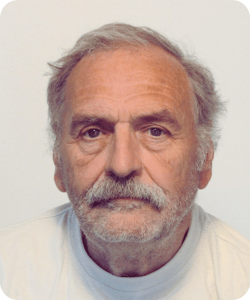
Prof. Frank Domoney
Chief Information Officer at Anglia Maghreb Quantum Cities
Title :
- An African Quantum Education System and Quantum Cloud and Internet
- Quantum Artificial Intelligence Security
- Quantum-based Internet
Abstract :
Africa has 1500 million people with a youth biassed age distribution, boundless materiel resources that the rest of the world covets, and limitless energy supplies. Key to achieving prosperity and a just standard of living for People who live in Africa lies in productive deployment of this population resource at home. The emerging Quantum World of unimagined computing power is catalysed by recently published ground breaking discoveries. These include actual available fault tolerant quantum computing machines, distributed quantum computing with error correction and entanglement distribution on fibre and satellite links. There is no good reason why this computing power may not be deployed in Africa to unlock the keys to human progress and prosperity. The rise of a multipolar world means that no power can deny any country access to technology without a competitor power making it available.
An African Quantum Internet from Damascus to Cape Town and Mombasa to Dakar that links Great Cities and Universities enables a Cloud of African computing power as a Digital Commons shared among cities and national populations. Novel forms of Quantum Sensing and Materiels development are enabled by powerful fast simulations. Barriers to learning disappear as the complexity of Linear Algebra in Dirac Notation is simplified by pictorial languages like ZX. ZXW and LO calculus. Spoken and written language barriers disappear as Large Language Models like T5X allow multiple language translation. Investment appears as the commercial opportunity of innovation emerges.
Assemble and fund 50 key people with a Shared Vision similar to the founders of the Europe project. Vodafone and Nokia started with 50 people each, who knew each other and already worked together. Work as a team to make use of the global resource on offer. Plan, develop and evangelise a standard curriculum, examinations, certification and teaching tools. Identify the student cohorts and how to train the trainers. Set up a pipeline into Industry and Academia and manage the application of new industrial techniques. Maintain the vision and manage the stages of its implementation
Short Bio :
Frank Domoney BSc MSc PG Dip(Economics) is a Big Data, Deep Learning, GPU and Quantum Computing Evangelist and actively promotes the use of the technologies where appropriate. He is familiar with Virtualisation and Cybersecurity Issues and has a role as a Skill Transfer Engineer specialising in Technology Evolution and Economic Development and integration with EU programmes.
After a thirty year career building Fixed, Mobile and Converged Telecommunications Networks for Vodafone, Three and BT in UK, Germany, France, Kosovo, Moscow and Egypt he saw the massive disruption introduced by Big Data, Blockchain, High Performance and Quantum Computing and Modern Manufacturing, in both technology and business and how they enable Smart Cities and Smart Factories and offer enormous opportunity to people in the Developing World.
He has learned over his career that Engineers need to reinvent themselves every eight to ten years. He is learning Artificial Intelligence Techniques and Quantum Computing and exploring their application to Africa Scale Problems. He is working with his Arabic Teacher to develop a vocabulary and syllabus to teach to people in Palestine and the Levant.
He was responsible for redesign of Fixed, Mobile, Data and Post Office Networks in Kosovo, and was Telecommunications Design Authority for the Red Sea resort of Port Ghalib and its thousands of hotels, villas, apartments and shops. He worked on rationalisation of four networks in Moscow and Master-planning of city districts in Saudi Arabia and UAE including Smart Buildings while in Dubai.
Since then he has studied NoSQL Databases, Graph Databases and Processing, Cluster Engineering, Stream Processing and SMACK architecture while registered as a PhD student.
Frank is helping to develop a Masters Degree in High Performance and Quantum Computing with one of the professors at Cadi Ayyad University in Marrakech. He is using his experience in the innovation cluster in Cambridge UK to introduce entrepreneurial activity in Morocco.
Frank has presented to the Moroccan Cyber Security Camp at ENSIAS. Deep Learning and Machine Intelligence can be applied to Cybersecurity very effectively. Post Quantum Cryptography will have global impact. He is actively investigating Digital Twinning, for factories and cities. He is actively investigating how Business Processing Modelling can be extended to Industrie 4.0.
Frank has learned ten languages in his lifetime but sadly is still only fluent in six. He has a passion for the reconstruction and transformation of North Africa Middle East and their integration in the EU economy. He has a great interest in the history of the Thirty Years War in Europe.
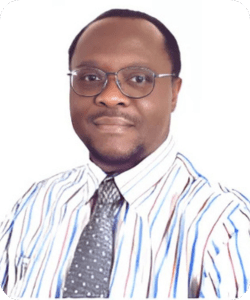
Prof. Claude Tadonki
MINES ParisTech Institute, France
Title :
- What do HPC applications look like?
Abstract :
Cloud computing is a flexible and affordable way to address and fulfil end-users’ need for high-range computing facilities. Flexibility with cloud systems, besides the typical pay-as-you-go characteristic, applies to hardware configuration and task scheduling associated with specific applications. High-performance computing (HPC), which aims at offering a fast computing solution from the machines and the programming standpoints, has also adopted the cloud computing paradigm and associated systems as a serious alternative. However, the vital requirement of efficiency w.r.t HPC implementations raises several questions and concerns when it comes to deployment on the cloud. To understand the main points and guide the thoughts for scientific and technical investigations, it is important to understand the key aspects of HPC. This is the aim of this talk, which is to provide a view of the HPC landscape and techniques, so as to help for a better understanding of this specific context.
Short Bio :
Claude Tadonki (M) is a senior researcher and lecturer at the MINES ParisTech Institute (Paris/France) since 2011. He holds a PhD and an HDR in computer science from University of Rennes and from Paris-Sud University respectively. After six years of cutting-edge research in operational research and theoretical computer science at the University of Geneva, he relocated to France to work for EMBL, University of Paris-Sud, LAL-CNRS and then MINES ParisTech. His main research topics included High Performance Computing, Parallel Computing, Operational Research, Matrix Computation, Combinatorial Algorithm and Complexity, Mathematical Programming, Scientific and Technical Programming, Automatic Code Transformations. Claude Tadonki has worked at several laboratories and universities, has initiated various scientific projects and national/international collaborations, has given significant number of CS courses in different contexts including industries. He is an active member of well established scientific corporations and reviewer of high-impact international journals and top-rank conferences. He has published numerous papers in journals and international conferences.He is very active in international collaborations and has co- organized several HPC conferences and forums.
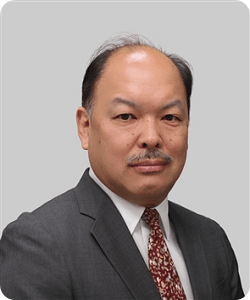
Prof. Takayuki Kushida
School of Computer Science, Tokyo University of Technology, Japan
Title :
- Integrated Systems Management of Cloud and IoT Powered by AI
Abstract :
Cloud becomes a platform for production usage and activity. In addition, Cloud-Native Environments such as Kubernetes are used as a common platform for production systems. The Internet of Things (IoT) is a network-connected object that can interact with physical environments. When physical values such as temperature, humidity, and pressure are captured as digitized data with a sensor in an IoT device, digitized data can be processed and analyzed in the cloud. As IoT applications are deployed for production usage on the cloud, systems management functions are mandatory and required for both the cloud and the IoT in an integrated manner.
Artificial Intelligence (AI) technology is applied to many fields. Systems management is one potential field powered by AI. AI support for systems management will be used for failure prediction, incident management, fault detection, efficient service delivery, daily tasks, and Ops software.
This talk explains research studies on integrating Cloud and IoT since it is critical for applications that support production usage and activity. There is a solid approach to applying AI to integrate Cloud and IoT systems management effectively. This talk also explains the research study on integrated systems management powered by AI.
Short Bio :
Takayuki Kushida is a professor at the School of Computer Science, Tokyo University of Technology (TUT). He is also a chair of the Computer Science Program at Graduate School, TUT. He leads the Cloud and Distributed Systems Laboratory in TUT. Before he joined TUT, he worked for IBM Research, Tokyo Research Laboratory as a senior research staff and pursued many research projects in distributed computing and cloud technology. He took the role of the technical staff in IBM Research HQ, NY, USA, as an international assignment and supported the technical strategy for IBM Research. He also took the role of a principal cloud solution architect in IBM Global Technology Services (GTS), Bangalore, India, as an international assignment. During his assignment to Bangalore, IBM India, he made many cloud technical solutions and reviewed them as a senior leader of the cloud solution architect. In the academic community, he was a director of the Information Processing Society of Japan (IPSJ) and executed the strategy and operation of the society. He was also editor in chief for IPSJ Academic Journal. He was awarded IPSJ Fellow for his advanced research contributions to distributed systems and cloud.
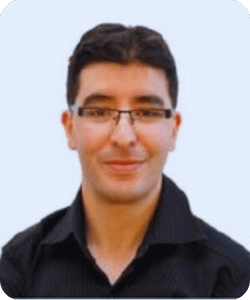
Prof. Sidi Ahmed Mahmoudi
Faculty of Engineering, University of Mons, UMONS, Belgium
Title :
- Key challenges of modern DNN models: compression, explainability and multimodal learning
Abstract :
During the last years, Deep Neural Networks (DNN) have gained significant importance in several research domains and applications that can learn from data. Thus, one can use DNN for image processing, actions recognition, text classification, language processing, speech recognition, etc. However, this high success of DNN models is accompanied by a high increase of computation time, architecture complexity, memory storage and energy consumption. Moreover, the deployment and exploitation of DNN models in real environments is generally related to connected sensors (cameras, microphones, temperature sensors, etc.) providing multimodal data, where real-time inference is required on embedded or edge resources. We present an overview of the main compression methods (pruning, quantization, knowledge distillation) that allow to reduce the computation time and memory size of DNN models while keeping a high accuracy and explainability. We analyze how well these methods adapt to modern architectures like Transformers, Vision Transformers, Large Language Models (LLMs), and Vision-Language Models (VLMs). Experimental results are conducted within image classification, object detection and actions recognition with DNN models that were optimized and deployed on Edge AI resources such as Jetson Nano, Jetson Xavier, Jetson Orin and Jetson Orin Nano. The obtained results demonstrate that model compression techniques achieve a 10x reduction in size while maintaining high accuracy and explainability with different DNN architectures.
Keywords:
DNN, DNN compression, pruning, quantization, knowledge distillation, images classification, object/actions recognition, explainable ai, multimodal learning.
Short Bio :
Sidi Ahmed Mahmoudi received his graduate engineering degree in
Computer Science from the University of Tlemcen, Algeria, followed by a master’s degree in Multimedia Processing from the Faculty of Engineering in Tours, France, in 2006 and 2008, respectively. He then obtained his PhD from the University of Mons, Belgium, in 2013. Currently, he is a Professor at the University of Mons, Belgium. His research focuses on the development and deployment of AI, Explainable AI (XAI), and Edge AI models, as well as the efficient exploitation of local and cloud computing resources (multi-CPU/multi-GPU architectures) within large-scale Big Data environments.
Dr. Mahmoudi has authored or co-authored over 200 international publications and has been involved in more than 20 national and international projects since 2008. In 2021, he founded the Deep’ILIA research team, specialized in artificial intelligence and deep learning, bringing together a team of 10 researchers.
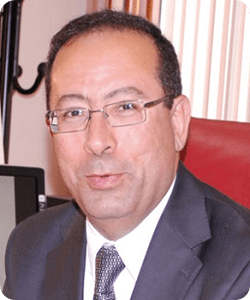
Prof. Radouane Mrabet
Mohammed V University in Rabat, Morocco
Title :
- Apprendre à l'ère de l'intelligence artificielle, le e-learning réinventé
Abstract :
Since its emergence thanks to the Internet, e-learning has generated many expectations. It has experienced periods of enthusiasm, stagnation, and sometimes disillusionment. Among the most powerful promises was that of personalized learning, which remains, to this day, largely unfulfilled.
The Covid-19 crisis marked a turning point: e-learning became a must-have at all levels, for all audiences. But this widespread use, often forced and improvised, highlighted its limitations. After the pandemic, the enthusiasm faded, and the use of e-learning saw a sharp decline.
Today, artificial intelligence is disrupting the digital landscape and giving e-learning a second life, potentially more ambitious, more effective… and more personalized. Can AI finally deliver on the promise of teaching tailored to the needs of each learner: will the long-awaited personalization of teaching finally become a reality? Is the idea of a virtual teacher dedicated to each learner now within reach? What roles will human teachers play in this new ecosystem? What ethical, social, and cognitive risks lie ahead for this development?
This 40-minute lecture will provide an overview of the current changes and look ahead to identify the potential benefits and risks inherent in this revolution. We will analyze the implications of AI integration for learners, teachers, and the educational institution as a whole. The goal is to provide a balanced perspective on the future of education in the era of artificial intelligence.
Short Bio :
Dr. Radouane Mrabet is Professor Emeritus at Mohammed V University of Rabat, National School of Computer Science and Systems Analysis (ENSIAS). He served as President of Sidi Mohamed Ben Abdellah University in Fez between 2018 and 2022, President of Mohammed V University – Souissi between 2010 and 2014, and Director of ENSIAS between 2007 and 2010.
He served as President of the Internet Society Morocco Chapter (MISOC) between 2017 and 2022, where he founded and led the IPv6 Task Force Morocco in 2006.
Professor Radouane Mrabet was a member of several national and international boards, commissions, and committees, including the Board of Trustees of the Naif Arab University for Security Sciences based in Riyadh, Saudi Arabia; the Board of Trustees of the Center for Ethics in Higher Education and Scientific Research belonging to the Union of Universities of the Islamic World; the Executive Council of the Association of Arab Universities; and the Moroccan National Commission for the Coordination of Higher Education. and the board of the private university of Fez.
Professor Radouane Mrabet received the title of Professor Emeritus from Mohammed V University in Rabat in December 2017 and the 2020 Arab Prize for Professional Excellence awarded by the General Secretariat of the G2T Global Awards in November 2020.
Professor Radouane Mrabet is the author of the book “Legal Aspects of Cybercrime and Cybersecurity in Morocco” published on October 31, 2024.
Professor Radouane Mrabet received his doctorate in June 1995 from the Université Libre de Bruxelles in the field of communication networks. In 1987, he received a diploma of advanced studies from the Pierre and Marie Curie University (Paris 6) in the field of computer systems. He also obtained, in 1986, the state engineering diploma from the Mohammadia School of Engineers, also in the field of computer systems.
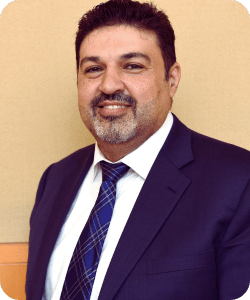
Prof. Omar Alfandi
Dean of the College of Technological Innovation at Zayed University, UAE
Title :
- The AI-Powered Cloud: Redefining Infrastructure for the Next Digital Era
Abstract :
Cloud computing is undergoing a radical transformation—evolving from static infrastructure into an intelligent, self-optimizing ecosystem. This talk explores how cutting-edge cloud platforms embed AI at every layer, revolutionizing resource allocation, workload orchestration, and predictive operations.
Through real-world case studies and the latest research, the session uncovers how AI-native cloud architectures accelerate innovation across industries—empowering developers, optimizing sustainability, and aligning with national digital transformation agendas. A key focus is the UAE’s $13B AI Vision, including its ambitious goal to establish the world’s first fully AI-driven government by 2031.
This talk aims to provide both a high-level overview and practical insights for professionals, researchers, and organizations preparing for the next generation of cloud innovation.
Short Bio :
Omar Alfandi is the Dean and Professor at the College of Technological Innovation at Zayed University. He holds a Doctoral degree in Computer Engineering and Telematics from the Georg-August-University of Goettingen – Germany in 2009. He received his M.Sc. degree in Telecommunication Engineering in 2005 from the University of Technology Kaiserslautern – Germany. Between 2009 and 2011, he enjoyed a Post-doctoral Fellowship at Telematics Research Group and he founded a Research and Education Sensor Lab where he is currently as Lab Advisor. Before that he carried his Doctoral Research as part of an Industry, Academia and Research centers collaboration European Union (EU) project. Dr. Alfandi was working package leader of EU DAIDALOS II in the 6th framework project. He published numerous articles on Authentication Framework for 4G Communication Systems, Future Internet and Trust and Reputation Systems in Mobile ad hoc and Sensor Networks. He is the co-founder and co-director of the SMART (Sensors and Mobile Applications Research and Education) Lab at CTI. His current research activities are directed towards Internet of Things (IoT), Security in Next Generation Networks, Smart Technologies, Security Engineering, Mobile and Wireless Communications.

